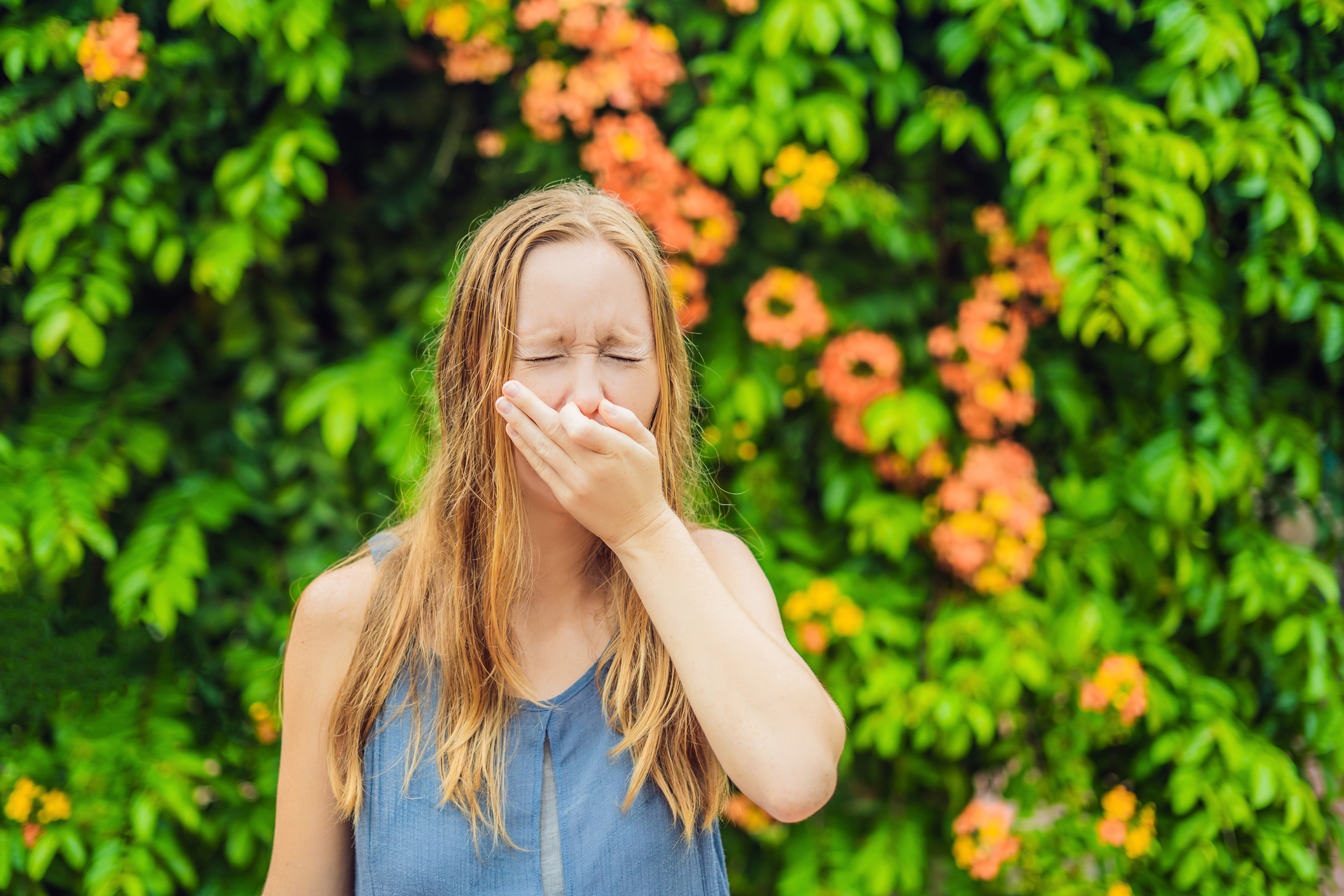Get Easy Health Digest™ in your inbox and don’t miss a thing when you subscribe today. Plus, get the free bonus report, Mother Nature’s Tips, Tricks and Remedies for Cholesterol, Blood Pressure & Blood Sugar as my way of saying welcome to the community!
9 natural allergy remedies that won’t put you to sleep

I was an allergic kid. And I’m an allergic adult.
They say that you can outgrow pollen allergies, but I haven’t been that lucky. To this day, my favorite season of the year is full of flowers, blooming trees… and sneezing.
Some days, the sneezing and runny nose are bad enough to make me stop everything else I’m doing. My body feels like I’ve got the flu. And on some nights, it’s enough to keep me awake into the wee hours.
I’ve found an antihistamine that doesn’t make me drowsy, but it doesn’t always give me a lot of relief.
This year, I began looking to more natural allergy remedies to relieve my suffering, and here’s what I’ve found…
Allergy remedies for natural relief
1. Honey. The bee pollen in honey is said to desensitize your body to other pollens. Just make sure that it’s honey local to your area. Start adding honey to your diet each day before allergy season starts.
2. Vitamin C. Vitamin C prevents your immune system from forming histamines, chemicals that cause the sneezing, watery eyes and runny nose of allergy sufferers.
Foods that have both vitamin C and flavonoids, especially quercetin and bromelain, are particularly effective. These include pineapple, citrus fruits, strawberries, cranberries and red peppers.
Vitamin C supplements work best if they are taken at intervals throughout the day.
3. Hot peppers. Capsaicin, the active chemical found in hot chili peppers, can open nasal passages and reduce congestion. While it won’t prevent the allergic reaction itself, it can make you a lot more comfortable during allergy season.
4. Carotenoids. The natural pigments that give many fruits and vegetables their bright yellow, red and orange colors also act as a type of antioxidant that decreases inflammation and supports the upper respiratory tract.
5. Chamomile tea. Like vitamin C, chamomile has been shown to reduce the production of histamines. Warning: chamomile has proteins similar to those found in ragweed and could cause itching or swelling of the tongue, lips or mouth in some people with a ragweed allergy. Chamomile is also known as a sleep aid, so you may want to use this allergy remedy in the evening near bedtime.
6. Black seed oil, which comes from the seeds of the Nigella sativa plant, was found to be an effective treatment for symptoms of allergic rhinitis when you want to avoid the effects of other allergy drugs. In a study of 66 patients, symptoms including nasal congestion, nasal itching, runny nose and sneezing were relieved during the first two weeks of using it.
7. Green tea. Naturopathic physician Dr. Peter D’Adamo suggests drinking a daily cup of green tea starting weeks before allergy season begins.
The polyphenols in green tea, as well as the amino acid theanine, are natural antihistamines, and that daily cup of green tea will build up your reserves before the pollen arrives in earnest. If you need to sweeten it, remember to use local honey.
8. Turmeric. Among all its other well-known health benefits, turmeric is an immune system modulator. That means that it, too, helps to slow the release of histamines.
9. Resveratrol. According to WebMD, using a nasal spray containing resveratrol three times daily for 4 weeks seems to reduce allergy symptoms in adults with seasonal allergies. You might find such a nasal spray online, but there are plenty of food sources, including grapes, blueberries, cranberries, raspberries and more.
Dehydration can make your allergy symptoms worse
During spring and into the summer months, as the weather warms and we become more active, dehydration can become a real danger.
In order to prevent allergy symptoms, staying hydrated is also crucial.
Dr. Susanne Bennett is a specialist in allergy treatment, and founder of the Wellness for Life Center in Santa Monica, California.
She says that allergy sufferers need extra water to support the increased drainage (translation: runny nose) and tears that flush mold and pollen out of our noses and eyes.
The more hydrated you are, the more those allergens are diluted and the less those histamines will go after them and bring on your allergy symptoms.
Dr. Bennett suggests taking your weight, dividing it in half and drinking that number of ounces of water each day during allergy season.
Editor’s note: Did you know that when you take your body from acid to alkaline you can boost your energy, lose weight, soothe digestion, avoid illness and achieve wellness? Click here to discover The Alkaline Secret to Ultimate Vitality and revive your life today!
Sources:
- The best natural hayfever remedies and relief — Good to Know
- Vitamin C for Allergies — New Health Advisor
- The Best Foods to Manage Your Seasonal Allergies — Next Avenue














